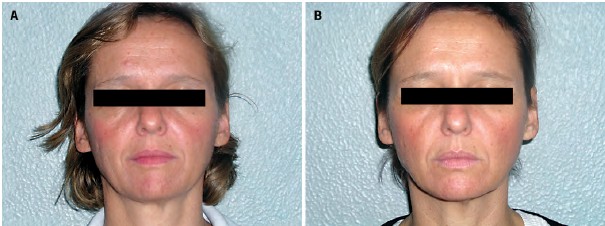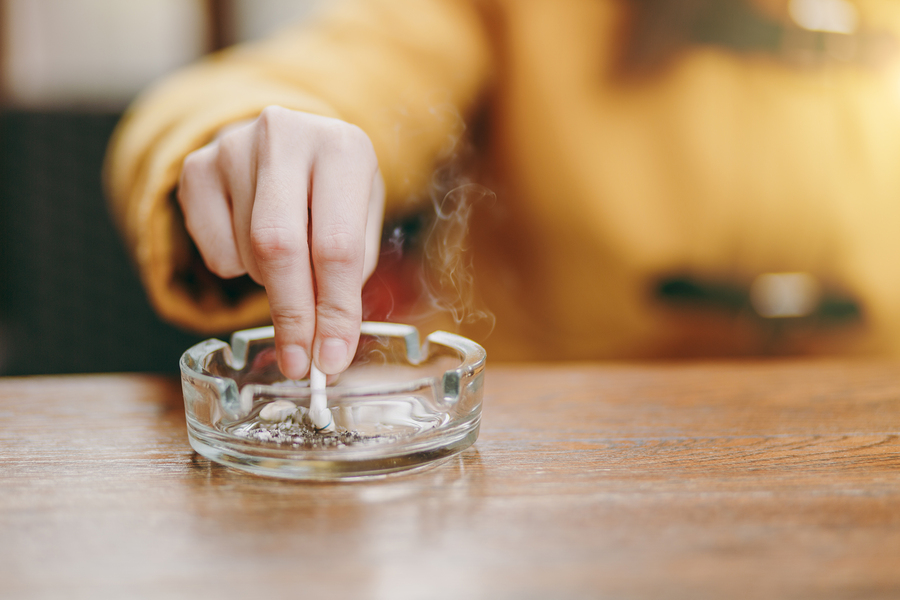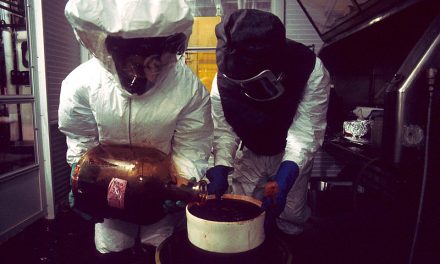One simple lifestyle modification — the cessation of smoking — has been found to dramatically reverse biological skin age in a study of Italian women.
RELATED STORY:

Dramatic reversal of skin aging has been seen in smokers who stopped for at least nine months. This does not mean, however, non-smokers will not also experience similar improvements by eliminating avoidable chemical exposures, detoxifying, as well as changing their diet to include longevity-promoting nutrients and phytocompounds, such as blueberry, zinc, and chocolate. In fact, a wide range of natural substances have been studied to contribute to restoring youthfulness, elasticity and health to the skin, as you shall soon see.
First, let’s take a closer look at what happens to your skin when you stop smoking….
Smoking Cessation Results In Dramatic Biological Skin Age Reversal
In a study published in the journal Skinmed in 2010, titled “”Quitting smoking rejuvenates the skin”: results of a pilot project on smoking cessation conducted in Milan, Italy,” researchers evaluated the benefits on the skin obtained by cessation of smoking in a sample of 64 Italian women who smoke, and who, over a period of 9 months, were followed by a team of dermatologists, psychologists and nutritionists.[i]
Each participant was given a clinical score to measure each of several criteria of skin health and appearance. Participants’ skin was assessed on the basis of presence of lines, vascular and pigmentation state, elasticity, brightness, and texture.
These measurements were then used to determine a biological age of the skin. At the beginning of the study the average biological age of participants was 9 years older than their chronologic age. Amazingly, after 9 months after cessation of smoking, the average reduction of the biological age of the patient’s skin was 13 years.
RELATED STORY:
If simply stopping smoking is responsible for reversing the aging process by as much 13 years, can you imagine what removing fluoride, high fructose corn syrup, hydrogenated oil, and thousands of other chemical exposures would do to your skin, and bodily health in general?
Natural Substances That Pack A Powerful, Age Defying Punch!
A number of clinical studies have been performed in order to ascertain the value of natural compounds in improving signs of aging, including the following:
Aloe: A 2009 study in women, published in the Annals of Dermatology, found that the daily ingestion of between 1.2 and 3.6 grams of aloe gel, taken daily for 90 days, significantly improved wrinkles and elasticity in photoaged skin in healthy female subjects over the age of 45.[ii]
Pine Bark: A 2012 study in women, published in the journal Clinical Interventions in Aging, found that oral administration of 40 mg or 100 mg of French maritime pine bark (pycnogenol), daily for 12 weeks,, improved clinical symptoms in photoaged facial skin. [iii]
Chocolate: A 2006 study in women, published in the Journal of Nutrition, found that long-term ingestion of high flavanol cocoa provides photoprotection against UV-induced redness (erythema) and improves skin condition.[iv]
Green Tea: A 2005 study in women, published in the journal Dermatologic Surgery, found that a combination of topical and oral green tea supplementation resulted in improvement in skin elasticity following exposure to ultraviolet light.[v]
Multi-Nutrient Mixtures: In 2004, a study published in the Journal of Dermatological Treatment found that a multi-nutrient mixture of vitamin C, vitamin E, carotenoids, selenium, zinc, amino acids and glycosaminoglycans, blueberry extract and pycnogenol improved visible signs of aging in women 45-73 years of age after only 6 weeks of treatment.[vi] In 2005, a study published in the Journal of International Medical Research found that a multi-nutrient mixture of marine proteins, alpha-lipoic acid, pine bark extract, vitamins and minerals is safe and efficacious in the treatment of aging symptoms of the skin in women, after six months.[vii] Finally, a 2006 study, published in European Journal of Clinical Nutrition, found that multi-nutrient mixture of soy extract, fish protein polysaccharides, extracts from white tea, grape seed and tomato, vitamins C and E as well as zinc and chamomile extract improves signs of skin aging in post-menopausal women, after six months.[viii]
Only The Tip of the “Anti-Aging” Iceberg…
Of course, there are many things that will help to improve skin quality and the appearance of youthfulness that have not yet been officially vetted through human clinical trials, and probably never will, due to the amount of time, effort and prohibitive quantities of money that it takes to do such research. There is, however, a sizable body of preclinical research – much of which we have accumulated on our database – on other natural compounds that appear to promote longevity. Those concerning skin, in particular, can be viewed here: Preventing Skin Aging, and now include over 80 natural substances. The wider set of data concerns Aging as a whole, and includes over 180 natural substances that have experimentally confirmed longevity promoting potential, which can be viewed here: Anti-Aging Research.
References
[i] Riccarda Serri, Maria Concetta Romano, Adele Sparavigna. “Quitting smoking rejuvenates the skin”: results of a pilot project on smoking cessation conducted in Milan, Italy. Skinmed. 2010 Jan-Feb;8(1):23-9. PMID: 20839421
[ii] Soyun Cho, Serah Lee, Min-Jung Lee, Dong Hun Lee, Chong-Hyun Won, Sang Min Kim, Jin Ho Chung. Dietary Aloe Vera Supplementation Improves Facial Wrinkles and Elasticity and It Increases the Type I Procollagen Gene Expression in Human Skin in vivo. Ann Dermatol. 2009 Feb;21(1):6-11. Epub 2009 Feb 28. PMID: 20548848
[iii] Minao Furumura, Noriko Sato, Nobutaka Kusaba, Kinya Takagaki, Juichiro Nakayama. Oral administration of French maritime pine bark extract (Flavangenol(®)) improves clinical symptoms in photoaged facial skin. Clin Interv Aging. 2012 ;7:275-86. Epub 2012 Jul 27. PMID: 22956863
[iv] Ulrike Heinrich, Karin Neukam, Hagen Tronnier, Helmut Sies, Wilhelm Stahl. Long-term ingestion of high flavanol cocoa provides photoprotection against UV-induced erythema and improves skin condition in women. J Nutr. 2006 Jun;136(6):1565-9. PMID: 16702322
[v] Annie E Chiu, Joanna L Chan, Dale G Kern, Sabine Kohler, Wingfield E Rehmus, Alexa B Kimball. Double-blinded, placebo-controlled trial of green tea extracts in the clinical and histologic appearance of photoaging skin. Dermatol Surg. 2005 Jul;31(7 Pt 2):855-60; discussion 860. PMID: 16029678
[vi] D Segger, F Schönlau. Supplementation with Evelle improves skin smoothness and elasticity in a double-blind, placebo-controlled study with 62 women. J Dermatolog Treat. 2004 Jul;15(4):222-6. PMID: 15764035
[vii] E Thom. A randomized, double-blind, placebo-controlled study on the clinical efficacy of oral treatment with DermaVite on ageing symptoms of the skin. J Int Med Res. 2005 May-Jun;33(3):267-72. PMID: 15938587
[viii] G R Lange Skovgaard, A S Jensen, M L Sigler. Effect of a novel dietary supplement on skin aging in post-menopausal women. Eur J Clin Nutr. 2006 Oct;60(10):1201-6. Epub 2006 May 3. PMID: 16670692
Sayer Ji
*Article originally appeared at Green Med Info.












